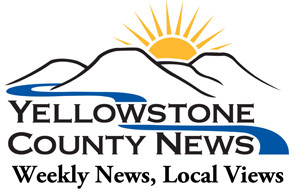While the proponents of the Montana Property Tax Initiative, CI-121 await word from the courts about the validity of their petition — a wait that is now weeks long – “a large, diverse, and unconventional coalition of Montanans has come together to oppose CI-121,” reports the Montana Chamber of Commerce.
The coalition includes the Montana Association of Realtors, Montana Farm Bureau, Montana Farmers Union, Montana AFL-CIO, Montana Federation of Public Employees, Montana Infrastructure Coalition, Montana Chamber of Commerce, Montana League of Cities and Towns, Montana Bankers Association, Montana Contractors Association, Montana Rural Education Association, and Montana Budget and Policy Center.
If approved by voters, CI-121 would amend the Montana Constitution by capping property taxes on Montana residences. Voters have until June 17, 2022, to collect 60,359 signatures to qualify CI-121 for the ballot in November 2022.
A suit was quickly brought by the Montana Federation of Public Employees, Montana Farmers Union and some individual citizens claiming that the Secretary of State failed to comply with all the requirements of state law before approving it. A Lewis and Clark County District Court judge halted signature gathering in response to the suit, a decision that was reversed by another judge, who pointed out that there was no reason to halt signature gathering, especially given the short time frame petitioners have to gather signatures. If the signatures are later determined to be invalid, they could simply be disqualified, he said. Signature gathering is now continuing.
Urging Montanans not to sign the petition, Montana Chamber of Commerce Government Relations Director Bridger Mahlum said in a recent release, “CI-121 is not the solution. The Montana Chamber is committed to identifying fiscally responsible alternatives that don’t amount to tax shifts on small businesses.” They also claim that the property tax restrictions will discourage investment in Montana and harm the ability of local governments and schools to get funding.
Montana Bankers Association President and CEO Cary Hegreberg stated that the Constitution is not the place to make complicated tax policy.
Proponents of the Montana Property Tax Cap claim that the initiative does not shift funding nor cut funding to schools, police, municipalities, etc. It “simply reduces the rate of growth.” It rolls back tax valuations of real property to 2019 levels, prior to the distortions brought about by out-of-state real estate purchases. It then limits tax rates on residences to one percent and limits annual increases in assessment values to the inflation rate or two percent whichever is lower.
The measure gives the Legislature the authority to provide similar tax relief to all kinds of property, not just residences.
Their purpose, they say, is to provide predictability for homebuyers, homeowners and landlords.
Some opponents have claimed that the initiative is the product of out-of-state property owners attempting to avoid paying local taxes, even though two of the initiative’s proponents are former Montana legislator and Bozeman attorney Matthew Monforton, and state Auditor Troy Downing, both of whom were named as defendants in the lawsuit.
Other commentaries attempt to identify the issue as a Republican vs. Democrat political struggle.

